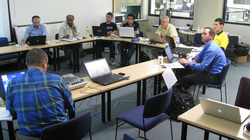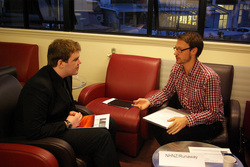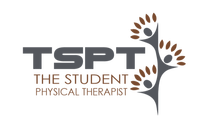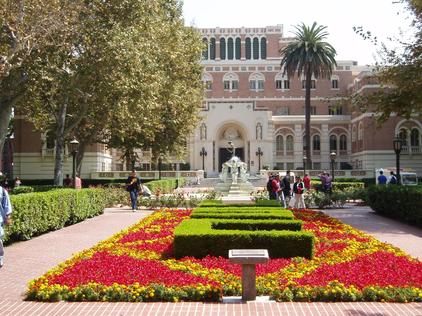- Home
- About Us
- TSPT Academy
- Online Courses
-
Resources
- Newsletter
- Business Minded Sports Physio Podcast
- Day in the Life of a Sports PT
- Residency Corner
-
Special Tests
>
-
Cervical Spine
>
- Alar Ligament Test
- Bakody's Sign
- Cervical Distraction Test
- Cervical Rotation Lateral Flexion Test
- Craniocervical Flexion Test (CCFT)
- Deep Neck Flexor Endurance Test
- Posterior-Anterior Segmental Mobility
- Segmental Mobility
- Sharp-Purser Test
- Spurling's Maneuver
- Transverse Ligament Test
- ULNT - Median
- ULNT - Radial
- ULNT - Ulnar
- Vertebral Artery Test
- Thoracic Spine >
-
Lumbar Spine/Sacroiliac Joint
>
- Active Sit-Up Test
- Alternate Gillet Test
- Crossed Straight Leg Raise Test
- Extensor Endurance Test
- FABER Test
- Fortin's Sign
- Gaenslen Test
- Gillet Test
- Gower's Sign
- Lumbar Quadrant Test
- POSH Test
- Posteroanterior Mobility
- Prone Knee Bend Test
- Prone Instability Test
- Resisted Abduction Test
- Sacral Clearing Test
- Seated Forward Flexion Test
- SIJ Compression/Distraction Test
- Slump Test
- Sphinx Test
- Spine Rotators & Multifidus Test
- Squish Test
- Standing Forward Flexion Test
- Straight Leg Raise Test
- Supine to Long Sit Test
-
Shoulder
>
- Active Compression Test
- Anterior Apprehension
- Biceps Load Test II
- Drop Arm Sign
- External Rotation Lag Sign
- Hawkins-Kennedy Impingement Sign
- Horizontal Adduction Test
- Internal Rotation Lag Sign
- Jobe Test
- Ludington's Test
- Neer Test
- Painful Arc Sign
- Pronated Load Test
- Resisted Supination External Rotation Test
- Speed's Test
- Posterior Apprehension
- Sulcus Sign
- Thoracic Outlet Tests >
- Yergason's Test
- Elbow >
- Wrist/Hand >
- Hip >
- Knee >
- Foot/Ankle >
-
Cervical Spine
>
- I want Financial Freedom
- I want Professional Growth
- I want Clinical Mastery
 How many of you are thinking about applying already to residency programs? If you are or think you may be in the near future, we recommend that you sign up for one of the webinars on August 6th or 7th to learn about the NEW centralized application system. Most of the residencies are participating in this process so it might be a good idea to get some details before you start applying! See here for how to sign up.
2 Comments
 Why We Pursued Residencies With the cost of PT school, it may appear to be a difficult decision to forgo the higher salary of a regular physical therapy job compared to that of a resident. After researching what residencies have to offer, we found the many benefits to greatly outweigh the costs. PT schools are intended to train us as generalists. This basically means we can provide patients with quality care in any setting, but we are far from specialists or experts in any area. The three of us are certain in which type of setting we want to practice. If you are not, a residency may not be right for you at this time. There are some pretty obvious reasons for pursuing a residency. A key one is the mentoring. Each week you typically get 3+ hours of one-on-one mentoring with an experienced clinician to co-treat. This, combined with the added coursework, has the potential to raise you to a higher clinical level at a much faster rate compared to regular clinical work. Imagine being able to pick the brain of a clinician with 10+ years of experience each week to help solve some of those difficult patient problems. Many jobs claim to offer some form of mentoring. Unfortunately, this often either gets forgotten or is not nearly as useful as advertised. For APTA-credentialed residencies, there is a minimum guarantee of 150 hours of mentoring. Many residencies also offer teaching, research, inter-professional collaboration, and other opportunities. Jim selected Harris Health System's Ortho Residency, because of their dedication to mentorship, highly educated and motivated faculty, and commitment to advancing the field of PT. Chris chose to attend Scottsdale Healthcare's Ortho Residency for their focus on manual therapy, integration of a full caseload with independent coursework, and managing primarily non-surgical patients. The emphasis the organization placed on manual therapy was displayed through the opportunity to be mentored by physical therapists with OCS and FAAOMPT credentialing. Brian selected USC's Sports Residency for their integration of manual therapy, on-field coverage at high school, collegiate, and professional levels, and their incredible staff of highly educated specialists who are determined to advance clinicians in sports physical therapy. How We Pursued Residencies Jim: Beginning my final year of physical therapy school, I honestly thought I would not be attending a residency. I knew I was interested in both Orthopaedics and Manual Therapy, so I intended to work in an outpatient clinic while earning a manual therapy certificate. As I became more aware of my options and the benefits of residency programs, I quickly realized a residency needed to be the next step in my professional career. My first in-depth look into specific programs began at the National Student Conclave. I talked with recruiters from several different programs and gained insight into what qualities I wanted my future employer to possess. I highly recommend checking out programs/ companies that may not interest you at first glance. This will give you a more developed perspective into what is available. At the very least, you can practice interacting with these companies so that your questions/answers will be even sharper for the program you truly want. It was at National Student Conclave where I met Chris Dewey, a faculty member of the Harris Health System's Orthopaedic Residency. I was immediately drawn to their program. Every faculty member had advanced degrees, and they focus heavily on mentorship: 2 qualities I believe are pertinent for success. Shortly after NSC, I completed their application and was invited down to Houston for an interview. I cannot stress enough the importance of interview preparation. This includes reviewing every component of your resume, performing mock interviews, and having questions ready for them as well. You are interviewing them at the same time they are interviewing you! Following the interview, I performed a quick reflection on the positives and negatives of the entire experience. This included geographic location, company personality, and the more specifics of their program. It was important for me to have this in writing so that I could review my experience after I was withdrawn from the moment. At Harris Health, my positives far outweighed my negatives. A few weeks after the interview process, I found out I was accepted into their program. Chris: At the beginning of the fall of my final year, I became aware of the incredible benefits a residency could provide in my growth as a clinician. Having been certain of my desire to work in orthopaedics for quite some time, it was only necessary to determine the orthopaedic residencies to which I wanted to apply. I started at the APTA's listing of residencies on their website. From there, I reviewed any information provided on the website for every orthopaedic residency. It was through the respective websites that I narrowed my search on any that stood out to me. You each will have different qualities you find desirable for a residency, so be sure to figure out which ones meet your criteria! As many of you probably know, an organization's website almost never has all the information you need. It was at that point that I emailed the head of each residency a set of questions I had remaining that were important to me. This serves two purposes: getting all the details about the residency and sticking your name in the correspondent’s head to show your focus on career development. After hearing back from each residency, I was able to narrow my search down to 6 residencies to which I applied. Many residencies have some general similarities with their applications: general application, resume/CV, essay/career statement, and letters of recommendation. Be sure to have your resume/CV reviewed by multiple individuals and utilize your school's career services! Give as much notice to the individuals you ask to write your letters of rec. and give them an occasional reminder. Odds are you will be selecting professors and clinical instructors, so they might be a little busy with their normal duties. Regarding your essay, obviously you want to answer any guidelines and questions provided, but try to display your passion for your field, as well. That is by far the most important thing when trying to be offered an interview and during the interview. Another key is discussing why that particular residency is of interest to you. Employers prefer candidates that want to be there. Once I was offered interviews, I spent a considerable amount of time preparing for them. For each residency, I researched all the available information for the organization and faculty, so that I would be prepared if asked any questions requiring that information, and so that I would be able to ask questions about those topics. Things to consider interview day: wear a suit (if you don't, odds are you will be the only one not wearing one), bring a portfolio of some sort (keep copies of your resume/CV here in case requested; consider taking notes during the interview), and bring LOTS of questions (you may write these in your portfolio). I didn't have an interview where I wasn't allotted time for questions. In fact, I had some interviews that consisted only of my asking questions. Finishing up an interview by asking questions continues to show your desire for the position. Now how to prepare for the interviewers' questions is usually the more difficult part. Research as many places as possible for interview questions: the internet, family, friends, past employers, etc. Once you have those questions, prepare several answers to each one. You can definitely expect questions about past experiences in school or the clinic, so prepare plenty of examples. During all of my interviews, I only heard 1 or 2 questions for which I hadn't prepared an answer. Now you don't want to sound like a robot, so be sure to rehearse answering the questions and modify them if necessary. That doesn't mean my interviews were perfect. In fact, I had some pretty poor ones. I made a mistake in one interview where I wanted to be sure to bring up information from alternate questions, as I was afraid I wasn't going to be able to show that side of me. Later in the interview, those questions came up and I was frozen without any well-prepared answers. You can never have too many examples. Learn from each interview and adjust accordingly. Brian: I was one of those few people that knew I wanted to pursue a sports residency the moment I found out about them. I spent approximately 1.5-2 years preparing for a sports residency. I believe that this was the key to me having so much success with being selected into multiple programs in addition to interviews. The very first thing I did when I knew I wanted to pursue a sports residency was speak to my physical therapy program chair at SLU. I was fortunate that he was an SCS and had a great deal of knowledge on sports residencies. I remember coming in with a ton of questions that honestly I do not remember anymore. He pretty much gave me a basic blueprint to start though. The next thing I did was join the APTA so I could have access to the sports section and get involved. I researched names in the sports section and started emailing and calling them. Simply asking questions and "following" the big sports names can give you a lot of knowledge about sports physical therapy. In addition to speaking with sports physical therapists I started emailing as many current sports residents as I could so that I would know what they did to prove they had a passion for sports physical therapy when applying for residencies. By then I had a full blown blueprint of what I needed to do (about 1 year out from when I could apply). I also searched the ABPTS for SCS's around my school (fortunately I had 3 in SLU's program) and back home. I made appointments to shadow them in the clinic and meet for Q & A's in my spare time. Whenever an athletic event came up that I could assist with game coverage I jumped on it. Friday nights and Saturday mornings consisted of game coverage. These athletic events were very important to me developing knowledge in the acute care of sports injuries in addition to developing relationships with athletic trainers. There are so many other little things I did along the way that made being accepted into sports residencies much easier. My advice to you is: - Speak to as many sports residency directors as possible. Have questions for them and follow up with them. If you have the chance to meet them in person (conferences) introduce yourself. If you see them again, re-introduce yourself (but ask a question too). - When you find programs that you're interested in, contact the current (or former) residents to see what their opinions are. - Volunteer at as many athletic events as possible. I think this is crucial in showing consistent dedication. You may have to make some sacrifices. I remember driving to Butler to work on my brother and his football buddies one night and driving back to St. Louis early the next morning to go volunteer at a soccer tournament. If you really love sports PT like I do, this should be easy. - Shadow and/or assist other members of the sports medicine team (doctors, strength coaches, athletic trainers, nutritionists). - Know what your career goals are. You have to have a vision of why you want to be a sports physical therapist. Everyone says they want to do sports PT but don't have reasons why other than "It'd be cool". If you love football, check out southern sports residencies. If you love skiing or snowboarding check out like a Howard Head for example. - Each residency emphasizes some components more than others. Some may emphasize research, others may not even have you do a research project. Some have on-field coverage at the college level, others have it just at the high school level. Find out what you value most in a sports residency and why those components fit your long term goals. - Find out where the past residents are now. This is often overlooked IMO. If you are looking at a residency for a stepping stone then did the past residents move on or stay? If you think you may want to stay at that clinic or university did the former residents stay? - Learn how to create a quality resume. Most PT schools do a poor job preparing students for how to interview and create a resume. I spent months learning about resumes, Linkedin, business cards, marketing and interviewing. I know many of my friends and even my colleagues Chris and Jim thought I went overboard in this area. Fortunately I knew that this was key. You could be the best PT candidate in the world or have better skills then the next guy but if people don't know who you are its tough to get that interview/job. Don't forget that you have to market yourself. Create your own brand! - Finally, find a way to make yourself unique(your brand) to other candidates. You could do this in a multitude of ways. I have 3 additional certifications and run a blog with Jim and Chris; maybe that made me more unique. Or maybe it was all the on-field experiences, etc. The point is your never going to know what the residencies think is unique so find your interests and pursue those within sports to the best of your ability (and time). This will help you in the interviews to explain why you are the best candidate for the program. Good luck and don't hesitate to contact me for advice! In conclusion, you can see that residency preparation takes a good deal of time, so the earlier you start the better! Showing your passion for that specific area through experiences and doing more than the bare minimum are crucial to separating yourself from the competition. Another point we want to make is the variety of interview types. We experienced phone/webcam interviews, one-on-one interviews with faculty members, interviews with current residents, panel interviews (a group of the faculty members or organizational administration ask you questions), interviews that had written cases for you to solve, and even a mock patient evaluation with plan of care development. Not only should you prepare for typical interview questions, but also consider spending time reviewing material related to the area of practice. We know this process might seem lengthy, but we truly believe it's worth it. We're going to be updating you all with components our residencies are offering and things we're learning. Hopefully, it will help you decide if a residency is for you. Good luck and email any of us if you have questions!!!
|
Copyright © The Student Physical Therapist LLC 2023




 RSS Feed
RSS Feed